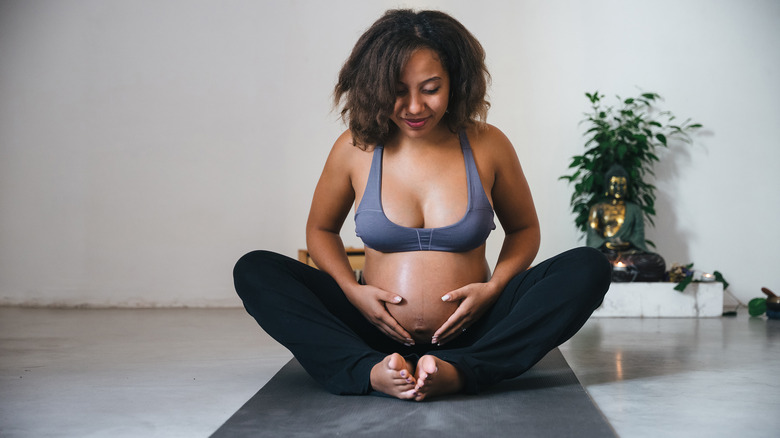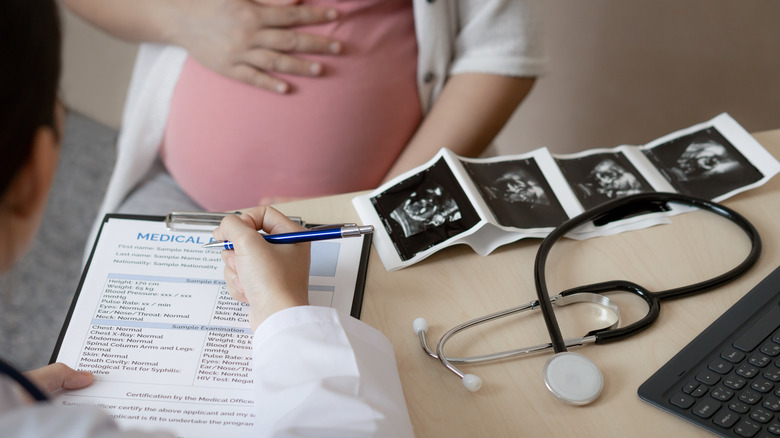New Study Finds This Surprising Age Group Is Now More At Risk Of Pregnancy Hypertension
Hypertension, or high blood pressure, is a common condition among pregnant women, affecting 1 in every 12 to 17 pregnancies in women aged 20 to 44, according to the Centers for Disease Control and Prevention (CDC). While widespread, hypertension can cause complications that impact both the mother and baby, and should be taken seriously. It used to be thought that the risk of high blood pressure in pregnancy rose as women got older, but new research shows that a younger generation of women may actually be more at risk.
High blood pressure means that the force of blood pumping against artery walls is too strong (via MedlinePlus). During pregnancy, you can develop chronic hypertension, or high blood pressure that either starts before you get pregnant or before your 20th week of pregnancy; gestational hypertension, which develops after the 20th week; or preeclampsia, which is an abrupt rise in blood pressure after the 20th week, usually in the last trimester. A possible reason for why so many pregnant people experience high blood pressure could be due to the volume of blood during pregnancy, which increases up to 45%, according to Healthline.
Hypertension during pregnancy is the leading cause of death in both mothers and babies, and can increase the risk of stroke and heart failure in the mother, premature delivery, and low birth weight for the baby (via U.S. News & World Report). It must be treated early to avoid any of these complications, making the need for prenatal care crucial.
Millennials and Gen Z are more at risk
A new study published in JAMA Network Open has found that Gen Z and millennial women are at greater risk for developing high blood pressure in pregnancy (via U.S. News & World Report). It used to be thought that your risk for hypertension rose as you got older, but this study showed that younger generations are actually more at risk, potentially pointing to this population's decline in heart health and the prevalence of risk factors like obesity.
Researchers analyzed data from 38,141,561 women ages 15–44 in the National Vital Statistics System natality database over the years 1995 to 2019. They explored the connection between high blood pressure-related disorders and the mothers' ages, as well as race. They found that women born in or after 1981 were more at risk, as well as women who were American Indian, Alaskan Native, and Black.
Study co-author Dr. Sadiya Khan, assistant professor at Northwestern University Feinberg School of Medicine in Chicago, emphasized that this multi-generational study is especially important because it goes beyond simply the age of the mother and also looks at race. Since racial and ethnic racial and ethnic disparities in maternal health care are enormous, this can perpetuate a cycle of generational decline in health. Study authors agreed that blood pressure screenings for women of all ages before and during pregnancy could be lifesaving and could improve the health of future generations.


